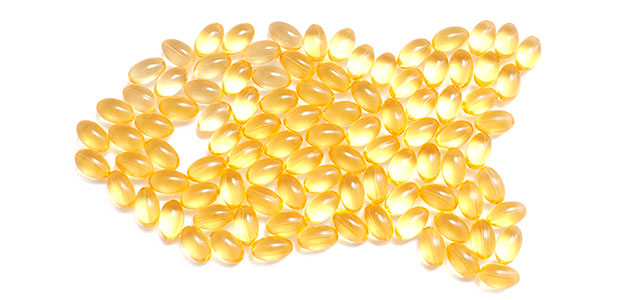Advertisement
Practical Prevention Plan
4 action steps against cancer

We’ve all heard it said: “An ounce of prevention is worth a pound of cure.” When it comes to cancer, that old saying carries a ton of truth. Can cancer really be prevented? Absolutely, but you need an effective strategy—a plan.
Cancer is a “multifactoral” condition. It is not enough to do just one thing. You must create an internal environment that is hostile to cancer. To accomplish this goal, you must focus on four primary cornerstones:
- a positive mental attitude
- a health-promoting lifestyle
- a cancer-fighting diet
- the proper use of nutritional supplements.
1. Mental state
Attitude, stress, personality and emotional state are thought to predict the development of many diseases, including cancer, via their impact on the immune system. Although their claims are somewhat controversial, some experts believe that the prototypical cancer personality is classified as “type C”—a personality associated with the denial and suppression of emotions, in particular, anger. The type C personality typically deals with stress through excessive denial, avoidance, and suppression and repression of emotions. The internalization of negative emotions is thought to contribute to the development of cancer by amplifying the harmful effects that stress produces on the immune system. Fortunately, the expression of positive emotional states and dealing effectively with stress exert immune enhancing effects.
2. Lifestyle factors
The importance of a healthy lifestyle in cancer prevention cannot be overstated. The key components are avoiding tobacco use and exposure to cigarette smoke, exercising regularly and avoiding alcohol or drinking only moderate amounts. Smoking dramatically increases the risk for all cancers and more than 30 percent of all cancer deaths are attributable to smoking. Quitting dramatically reduces risk.
3. Diet and cancer
Many experts believe that diet is the major cause of cancer in North America and a mounting abundance of data seems to support this theory. Certain dietary factors are associated with an increased risk for most cancers, while others are protective. Constructing a cancer-fighting diet means that the focus is on consuming those foods associated with decreased risk, while avoiding those with increase risk.
4. Nutritional supplements versus cancer
There are three key supplements essential in a cancer prevention plan: a high-potency multiple vitamin and mineral, especially one that provides sufficient levels of antioxidant nutrients, a high quality “greens” drink and long-chain omega-3 fatty acids.
A high-potency multiple vitamin and mineral is one that provides optimal levels of all essential vitamins and minerals. Such a product will not be a “one a day” product, as it is physically impossible to get everything into just one pill. A high- potency multiple will usually require two or three tablets be taken twice daily.
Your body needs a constant supply of essential vitamins and minerals. One of their critical roles is as components of enzymes–molecules that build or break down other molecules. Enzymes are in charge of repairing damage to cells, including damage to DNA and cellular membranes. If your cells’ enzyme defense mechanisms are not up to par because your body lacks one or more key nutrients, the cells are vulnerable to malfunction. Cancer is one possible result. Most enzymes in the body have both a vitamin portion and a mineral portion. The enzyme requires both portions to function properly. Your immune system is also quite dependent on a high level of vitamins and minerals to function properly. The immune system is so metabolically active that it requires a constant steady stream of nutrients. A deficiency of virtually any single nutrient can lead to significant impairment of the immune system.
“Greens drinks” are commercially available products containing dehydrated barley grass, wheat grass, or algae sources such as chorella or spirulina. These green super foods are power-packed full of cancer-fighting phytochemicals, especially carotenes and chlorophyll, known for their powerful antioxidant properties. These dehydrated products can be convenient if you don’t have time to sprout and grow your own source of greens. Simply rehydrate by mixing with water or juice to form a green drink. Drink one to two servings daily.
Long-chain omega-3 fatty acids refer to the omega-3 fats eicosapentaenoic acid (EPA) and docosahexanoic acid (DHA) found in fish oil that play a central role in cell membrane structure and function. Deficiency of these fats is associated with an increase risk for cancer and about 60 other conditions including heart disease, stroke, high blood pressure, skin diseases and diabetes. Although the body can convert short-chain omega-3 alpha-linolenic acid from flax seed to longer-chain omega-3 fatty acids, it can be more efficient to get them from fish oils. Adding a fish oil supplement to your daily routine provides extra insurance that you are getting sufficient levels of these important oils.
When selecting a fish oil supplement, it is essential to use a brand you trust. Quality control is an absolute must to insure the product is free from heavy metals such as lead and mercury, pesticides, damaged fats (lipid peroxides) and other contaminants. For prevention, take enough to provide 200 to 400 milligrams of EPA and 100 to 200 mg of DHA daily.
With these important protective supplements and the other factors described above, it is possible to reduce your cancer risk and even devise a strategy to increase the odds of beating this disease.




